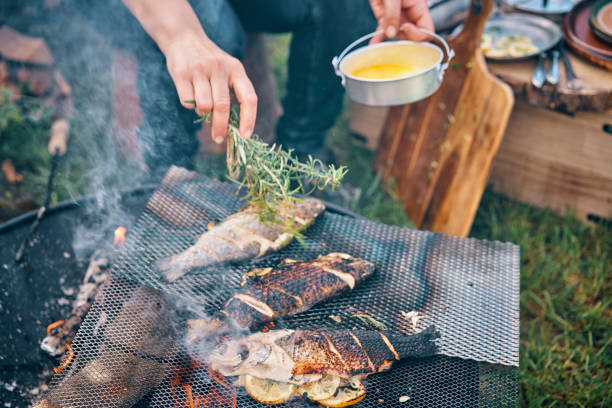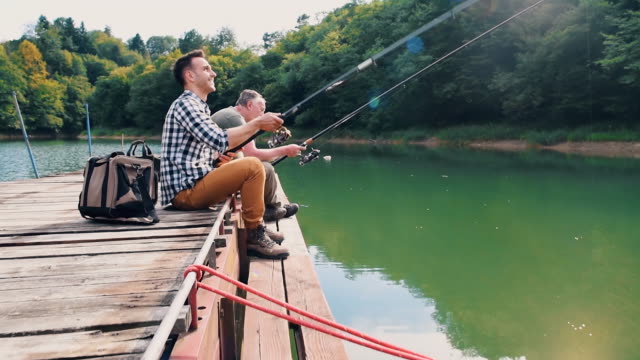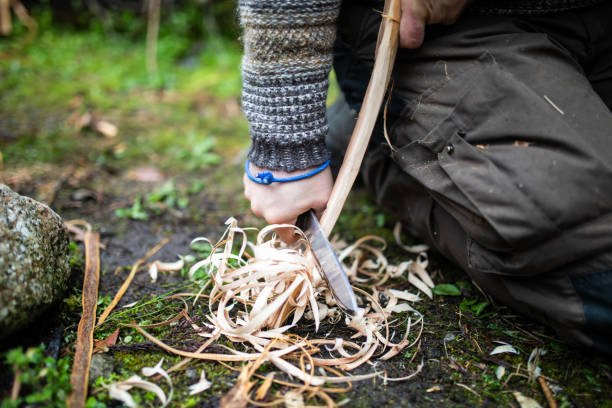Embarking on a camping adventure is an exhilarating opportunity to immerse yourself in nature’s embrace and disconnect from the hustle and bustle of everyday life. However, to ensure a safe, comfortable, and enjoyable outdoor experience, it’s essential to equip yourself with a solid foundation of camping skills. From pitching a tent to building a campfire, these essential abilities will not only enhance your wilderness adventures but also instill confidence and self-reliance.
Shelter and Camp Setup
1. Tent Pitching and Site Selection
Choosing the right campsite and pitching your tent correctly are crucial skills for a comfortable camping experience. Learn how to select a suitable site with proper drainage, flat ground, and adequate shade or sun exposure. Master the art of properly pitching your tent, ensuring it’s taut, well-ventilated, and waterproof.
2. Tarp and Shelter Setup
In addition to tents, tarps and other improvised shelters can provide valuable protection from the elements. Learn how to set up a tarp for a makeshift shelter, create a lean-to using natural materials, or construct a basic survival shelter using branches and foliage.
3. Campsite Organization and Leave No Trace Principles
Maintaining an organized and tidy campsite not only enhances your comfort but also minimizes your impact on the environment. Master the art of efficient camp setup and organization, and adhere to the Leave No Trace principles to ensure you leave your camping spot as pristine as you found it.

Fire and Cooking
4. Campfire Building and Safety
Few things embody the camping experience more than a crackling campfire. Learn how to select the appropriate location for your fire, gather suitable tinder and fuel, and safely build and extinguish a campfire. Understand the different fire configurations, such as the teepee or log cabin methods, and how to maintain a sustainable burn.
5. Camp Cooking Techniques
Mastering camp cooking skills can elevate your outdoor culinary experiences. Learn how to cook over an open fire, use a camp stove or Dutch oven, and prepare delicious and nutritious meals using simple ingredients. Experiment with foil packet cooking, skillet meals, and dehydrated or freeze-dried food options.
6. Water Treatment and Purification
Access to clean, potable water is essential for any camping trip. Familiarize yourself with various water purification methods, such as boiling, chemical treatment, or using a portable filter or purifier. Understand how to identify safe water sources and properly store and transport water.

Navigation and Wilderness Survival
7. Map Reading and Compass Use
Navigating the wilderness requires a solid understanding of map reading and compass use. Learn how to interpret topographic maps, orient your map using a compass, and navigate using landmarks, bearings, and other techniques. Develop the skills to plan and follow hiking routes, as well as identify potential hazards or obstacles.
8. Campsite and Trail Marking
When venturing into the backcountry, it’s crucial to mark your campsite and trails to avoid getting lost. Learn how to use natural markers, such as cairns or trail blazes, as well as more modern techniques like GPS waypoints or reflective trail markers.
9. Basic Survival Skills
Acquiring basic survival skills can be a lifesaver in emergency situations. Learn how to build a shelter, start a fire without matches, find and purify water, and signal for help using various methods, such as smoke signals or reflective surfaces.
Outdoor Living and Safety
10. Proper Clothing and Layering
Dressing appropriately for the outdoors is essential for comfort and safety. Understand the principles of layering, including base layers, insulation layers, and waterproof/breathable outer layers. Learn how to select the right fabrics and materials for different weather conditions and activities.
11. Knot Tying and Lashing
Knot tying and lashing are versatile skills that can be applied in various camping scenarios, from securing tarps and shelters to setting up bear bags or hanging food. Master essential knots like the bowline, clove hitch, and square knot, as well as lashing techniques for constructing improvised structures or securing loads.
12. Bear Safety and Food Storage
When camping in bear country, it’s crucial to practice proper food storage and bear safety techniques. Learn how to use bear-resistant canisters or hang food properly using the counterbalance or Pacific Crest Trail methods. Understand bear behavior and how to react in case of an encounter.
Camping with Kids
13. Age-Appropriate Activities and Games
Camping with kids can be an enriching experience, but it requires special considerations. Learn how to plan age-appropriate activities and games that keep children engaged, entertained, and educated about the great outdoors. Incorporate nature-based crafts, scavenger hunts, or outdoor skill-building exercises.
14. Child Safety and Supervision
Ensuring the safety of children in the outdoors is paramount. Learn how to establish clear boundaries, supervise activities, and teach kids about potential hazards, such as wildlife encounters, campfires, or steep terrain. Equip them with the knowledge and skills to stay safe while exploring the wilderness.
Outdoor Etiquette and Leave No Trace
15. Respecting Nature and Wildlife
Camping provides an opportunity to appreciate and respect nature. Learn how to minimize your impact on the environment by following Leave No Trace principles, such as properly disposing of waste, minimizing campfire impacts, and respecting wildlife and their habitats.
16. Campground and Trail Etiquette
When sharing the outdoors with others, it’s essential to practice good etiquette. Learn how to maintain noise levels, respect other campers’ privacy, and follow trail etiquette, such as yielding to uphill hikers and keeping trails clear of obstructions.
Gear and Equipment
17. Proper Gear Selection and Maintenance
Having the right gear and equipment can make or break a camping trip. Learn how to select high-quality, durable, and appropriate gear for your intended activities and weather conditions. Understand the importance of proper gear maintenance, such as cleaning, drying, and storing equipment to ensure its longevity.
18. Repair and Improvisation Techniques
In the great outdoors, the ability to repair or improvise gear can be a lifesaver. Learn how to perform basic repairs on tents, backpacks, or clothing, as well as improvise solutions using natural materials or everyday items.

Outdoor Activities and Skills
19. Fishing and Foraging
Supplement your camping meals with fresh fish or foraged edibles by learning basic fishing and foraging techniques. Familiarize yourself with local regulations, safe and sustainable practices, and how to identify edible plants, mushrooms, or fish species.
20. Outdoor Photography and Journaling
Capture and preserve the beauty of your camping experiences through outdoor photography and journaling. Learn techniques for taking stunning landscape or wildlife photos, as well as how to document your adventures through written accounts or sketches.

FREQUENTLY ASKED QUESTIONS About Camping Skills
What is the most important camping skill to learn first?
The most crucial camping skill for beginners is tent pitching and site selection. A properly pitched tent in a suitable location will provide a safe and comfortable shelter, which is the foundation of a successful camping trip.
Can I learn camping skills on my own, or should I take a course?
While many camping skills can be self-taught through research and practice, taking a course or joining a local outdoor club can provide hands-on guidance from experienced instructors and the opportunity to learn in a controlled environment.
How important is knowing how to read a map and use a compass?
Map reading and compass use are essential navigation skills that can prevent you from getting lost in the wilderness. Even with the availability of GPS devices, it’s crucial to have backup navigation methods in case of battery failure or signal loss.
Can I practice camping skills in my backyard or local park?
Absolutely! Practicing camping skills in a familiar and controlled environment, such as your backyard or local park, can help you build confidence and identify areas for improvement before venturing into more remote locations.
What are some essential items to include in a camping first aid kit?
A well-stocked camping first aid kit should include bandages, antiseptic wipes, gauze pads, adhesive tape, scissors, tweezers, pain relievers, antihistamines, and any personal medications you may need.
How can I ensure my campfire is safe and legal?
Before building a campfire, check local regulations and fire restrictions. Choose a suitable location away from overhanging branches or dry vegetation, and clear a fire pit area. Always have water or sand nearby to extinguish the fire properly before leaving the site.
How can I involve children in camping activities and keep them engaged?
To involve children in camping activities and keep them engaged, plan age-appropriate games and activities, such as nature scavenger hunts, outdoor crafts, or simple skill-building exercises like knot tying or fire-building (under close supervision). Encourage exploration and discovery by incorporating educational elements about the local flora, fauna, and natural processes.
Final Words
Mastering these 20 basic camping skills will not only enhance your outdoor experiences but also instill a sense of confidence and self-reliance in the great outdoors. From pitching a tent and building a campfire to navigating with a map and compass, each skill contributes to a safer, more enjoyable, and more responsible camping experience.










